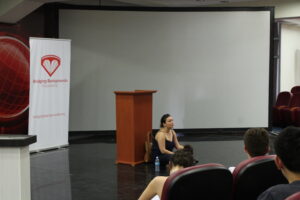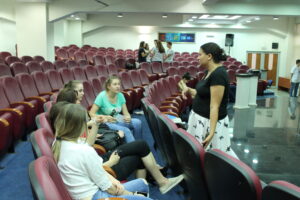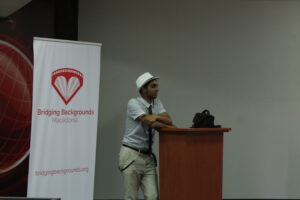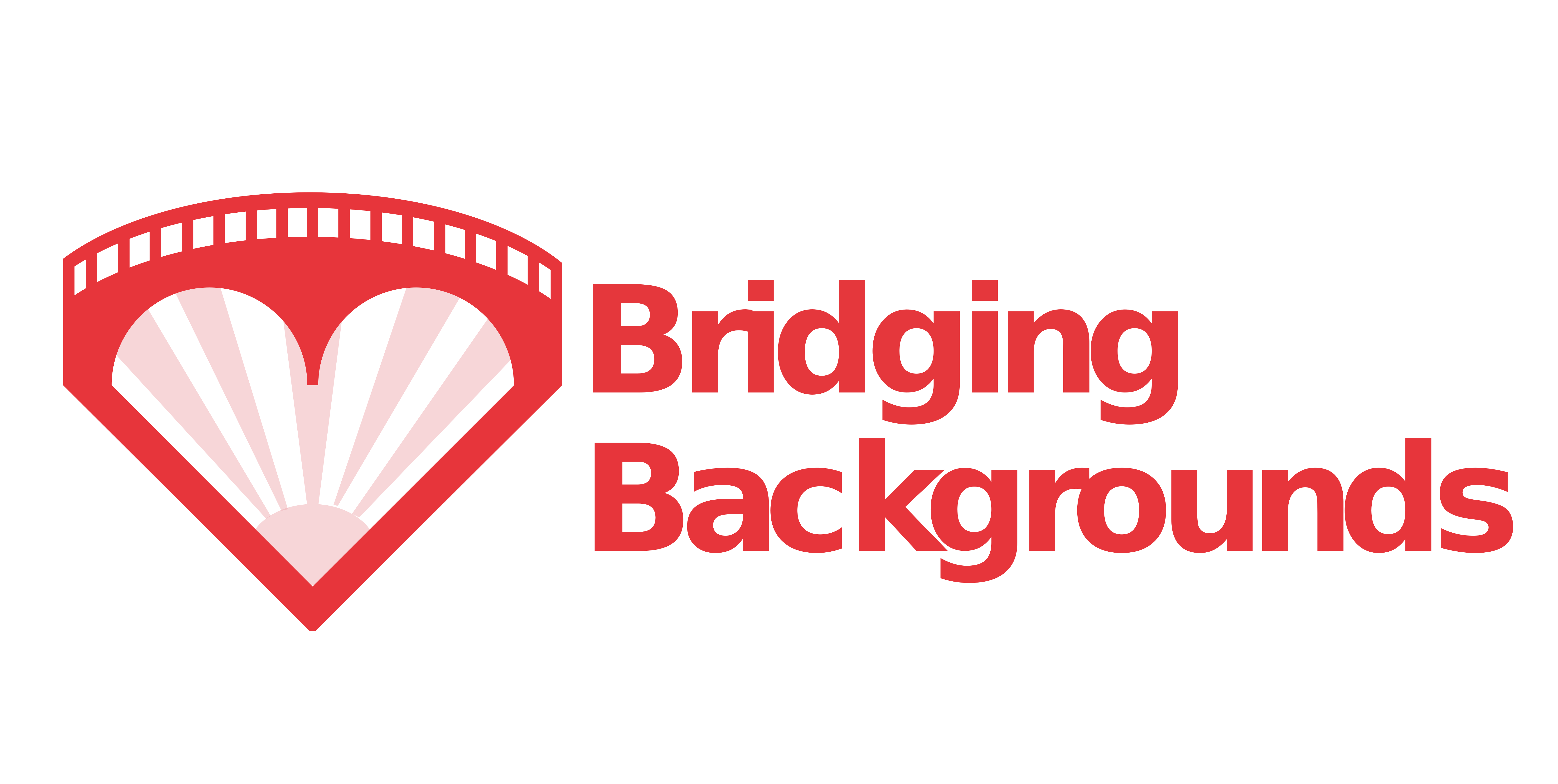The fourth day of Bridging Backgrounds was filled with human rights education activities, community activism training, and the activist talks session. During the activist talks, the participants had the pleasure of listening to talks of and posing questions to three activists who spoke about their different experiences in their respective fields. The first activist who spoke was Teodora Stolevska, a debate coordinator of the Youth Educational Forum. Teodora took a relaxed and informal approach to her talk, which began with her sitting on the floor with her legs crossed. Teodora admitted that, in the past, she did not believe that activism could make a difference and instead focused on activities such as competitive debating which would benefit herself. However, with her involvement in the Student Plenum, her opinion changed when in June of 2016, the student elections turned violent.

It was this injustice that carried a political connotation that made Teodora passionate about fighting for student rights and against institutional oppression. “There are two types of community activism that you can engage in. The first type is that you can volunteer for an organization and see the fruits of your labor quite soon, such as a concert being organized or a house being built. The second type is the harder one and it involves committing to creating long term effects. In other words, it involves institutionalization,” Teodora proclaimed to the participants. This categorization prompted the participants to discuss their Bridging Backgrounds community-based project ideas with Teodora on the spot and get advice from someone who has had very concrete organizational experience. Teodora offered her help to the participants who were interested in forming student parliament organizations. To the students who did not have fully formed ideas about their projects yet, Teodora said: “If you can’t find a passion, help other people’s passions.” Finally, Teodora shared experiences about building a house for a Roma family, the way she had used Facebook advertisements, and said encouraging words to the people who had interests outside of the community activism mainstream: “If people aren’t interested in your projects right away, use comedy. It’s likely that you’ll get their attention.”
The next activist, Deb Wakefield, a United States Peace Corps volunteer, explained her experience with activism. After briefly mentioning the history of the Peace Corps as an organization, she explained that most often Peace Corps volunteers work as English teachers or NGO workers. Peace Corps volunteers only come to countries they are asked to come to; thus, they do not show up uninvited. Peace Corps classifies their work is “apolitical” since they are not proponents of any one political party, but rather they only serve as agents that promote democracy, human rights, and education. Deb said that the goals of Peace Corp are helping people with training and skills and the betterment of understanding of US values and the values of the country that they work in. In accordance with her organization’s values, Deb currently lives with a host family in Sv. Nikole where she conducts community work with a local NGO that focuses on women’s issues.

Deb facilitated an interactive exercise with the participants which called for group work. Deb separated the twenty-six high school students into groups and gave them scenarios of hypothetical and real community problems that need solving. The participants were instructed to name the obstacles that they would come across, as well as come up with solutions to their given problems. Considering the fact that the participants had been taking part in similar interactive, problem-solving activities in the days prior to Deb’s talk, they had no issues with this exercise and were quite successful at it. At the end of her talk, Deb left them with this final note: “Your greatest resource, not to sound really cheesy, is other people.”
Lastly, Sunai Sabrioski, a reporter for News Twenty-Four, delivered a provocative talk that critically engaged the participants. He proclaimed that the media is the biggest stakeholder for human rights in the sense that it is the role of the media to keep governments accountable. Unlike the other two activists, Sunai did not spend much time talking about his experience. Rather, he asked the participants what ethnicity they thought he belonged to. It took participants a long time to guess his ethnicity, finally concluding that he is a part of the Roma community. This instance could indicate a number of things, including the participants’ preconceived notions about how a Roma person should look like and the participants’ lack of exposure to the Roma people. Sunai seemed to ask the question in order to make the participants uncomfortable. Sunai then asked the participants what discrimination meant to them. Participants answered in various ways, including defining it as “limiting a person’s ability to achieve their full potential”, and naming segregation, legally or as a result of history and economics, as a part of discrimination.

The participants reached a consensus that minorities experience discrimination in Macedonia. However, Sunai challenged this notion by saying that he experienced positive discrimination because he is often the only Roma person in the room. Playing the devil’s advocate, he asked whether them being treated better by certain institutions is fair. Nevertheless, participants felt that this type of positive discrimination, as well as affirmative action policies, were justified because of historic discrimination against minorities. Eventually, this talk of discrimination felt all too real for an Albanian participant. While discrimination is generally not a part of the ethnic-Macedonian participants’ lives, ethnicity-based discrimination is a reality for the ethnic minority participants, as opposed to an intellectual exercise. A few participants shared personal experiences when they had been called slurs and when people knew had told them not to go to an ethnic-Macedonian high school. Their emotional reaction, in a sense, captured what none of the activities could fully express: the jarring reality and effects of ethnic discrimination on real people.
Sunai’s talk culminated with participants sharing their experiences attending one of the few inter-ethnic schools in the country. They spoke about how they have friends of different ethnicities and how they all joke about the ridiculousness of stereotypes. Participants also felt that the older generations’ prejudices are hard, if not impossible, to change. However, one participant asserted that “Education is key” in the building of inter-ethnic understanding and coexistence in Macedonia, which came back to the importance of Bridging Backgrounds as a conference. It seemed that Sunai’s provocative style made the participants more aware of why they were at Bridging Backgrounds: to learn about ways in which they can build more tolerant communities through education and activism.

